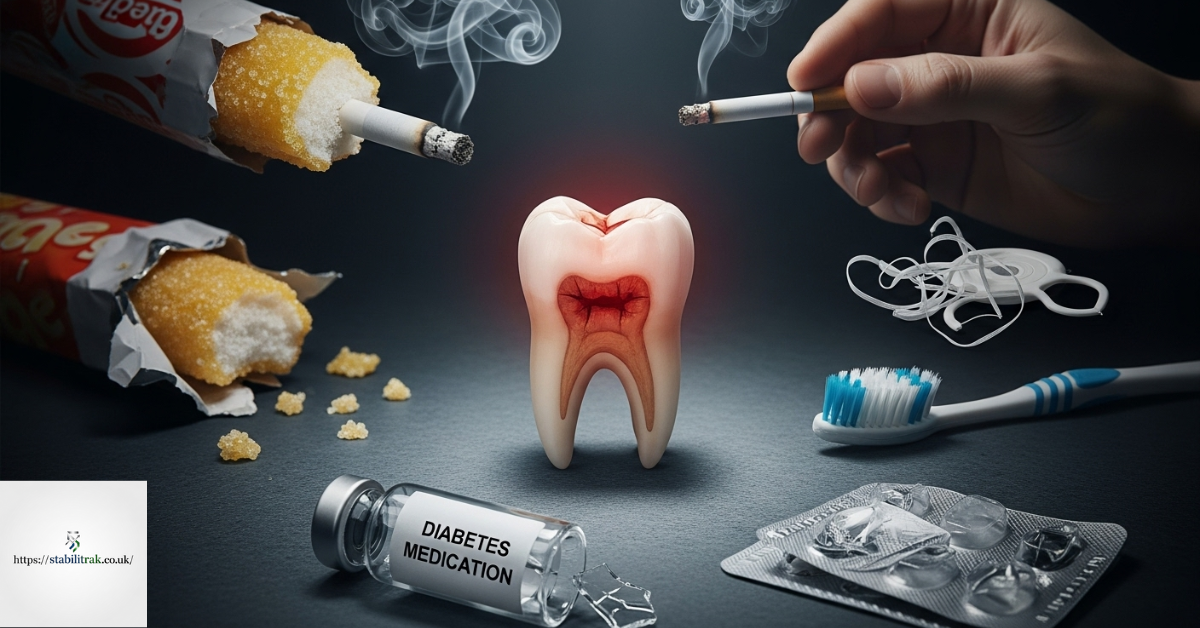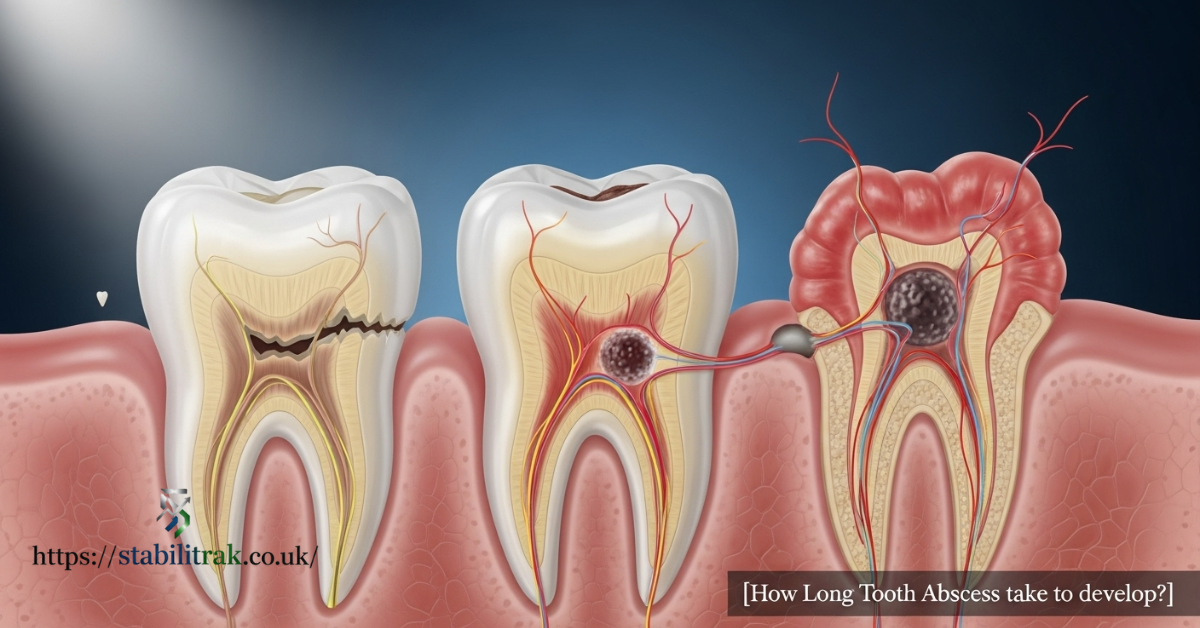I never thought a tooth infection could mess up my whole week until I woke up with half my face swollen and this unbearable throbbing pain that wouldn’t let me sleep or eat. At first, it just felt like a small toothache, nothing serious. But within days, it got worse, and I started to panic after reading online that an infection could spread to other parts of the body. If you’re in the same boat, scared, confused, and just trying to figure out what’s happening, you’re not alone.
In this blog post, we’ll break down everything you need to know about a tooth infection, from how it starts to when it becomes dangerous. You’ll learn the warning signs, how fast it can spread, and when to seek help. Whether you’re just feeling some pain or dealing with serious symptoms, this guide is here to clear things up and help you take the right next step. Let’s get into it and make sure you stay safe and informed.
Can a Tooth Abscess Kill You?
Certainly, a tooth abscess is more serious than just a swollen pocket of pus. It’s a red flag that an infection has reached the inside of your tooth, attacking the pulp tissue and potentially spreading through your bloodstream.
If the infection breaks through the confines of your tooth and jawbone, it can travel quickly, sometimes in a matter of days. From there, it may reach your brain (causing a brain abscess), your heart (triggering endocarditis), or your lungs, leading to a host of systemic infections. These are life-threatening complications that no one should take lightly.
Read More Article: How Long Does a Root Canal Take
When Does a Tooth Infection Become Life-Threatening?

It’s not about the pain to it’s about the spread. A tooth infection becomes dangerous once it escapes the oral cavity. Signs you’re in dangerous territory include:
- Swelling around the face or neck
- Difficulty swallowing or breathing
- High fever (100.4°F or more)
- Rapid heart rate
- Mental confusion or extreme fatigue
At this stage, you are not dealing with just dental pain anymore. You are facing a medical emergency often requiring urgent hospitalization, IV oral antibiotics, and in some cases, surgery.
Risk Factors Associated with Tooth Infection

Not everyone is equally vulnerable. Certain conditions or factors increase your risk of a tooth infection becoming mortal.
Older Age
As we age, our immune system weakens. This results in older adults being weaker in defending against serious infections like dental abscesses. A simple cavity can turn into osteomyelitis (bone infection) or worse if ignored.
Immunity
People with weakened immune systems, such as those with HIV, cancer, or on immunosuppressant drugs, face a much higher chance of systemic infection from an untreated abscess. Even common bacteria can wreak havoc in these individuals.
Diabetes
Diabetics are at higher risk due to poor blood sugar control, which affects wound healing and immune responses. Even minor infections in the oral cavity can become full-blown emergencies if not treated swiftly.
Malnourishment
Lack of essential nutrients impairs your body’s ability to mount a defense. Malnourished individuals often have compromised oral health, thin gum tissue, and delayed socket healing, creating ideal conditions for bacterial growth.
More Article: Why Does the Roof of My Mouth Hurt
How Long Tooth Abscess take to develop?

A dental abscess doesn’t just appear overnight. It typically forms over a few days to a week as bacteria invade the tooth pulp. You may feel a dull ache that worsens, followed by throbbing pain, swelling, or even a visible red bump on your gums.
Without proper treatment, pus begins to accumulate, and pressure builds inside your tooth or gumline. If you’re experiencing severe mouth pain with swelling or a foul taste, your abscess may be moments away from rupturing.
What Happens Once an Abscess develops?
When an abscess develops, the infection may:
- Spread into the jawbone (causing bone damage).
- Penetrate soft tissue and reach the neck or sinuses.
- It enters the bloodstream, causing sepsis, a life-threatening condition.
- Form pockets of infection in critical areas such as the lungs or brain.
You may notice difficulty breathing, nausea and vomiting, chest pain, or a sudden rise in fever. This is the phase where ignoring the symptoms could cost your life.
Warning Signs Your Tooth Infection Is Spreading Through Your Body

When a tooth infection enters your bloodstream, it can cause sepsis, a body-wide, inflammatory response to infection. Key signs of blood involvement include:
- High fever and chills
- Swelling in the face or neck
- Rapid heartbeat
- Nausea and vomiting
- Low urine output or dark-colored urine
- Malaise and fatigue
- Mental confusion
If you’re seeing these symptoms, the answer to how long until a tooth infection kills you may be: not long. It is crucial to visit the emergency room right away.
When to Visit a Hospital for a Tooth Infection
Here’s a clear rule of thumb: if the infection affects more than your tooth, go. Seek emergency care if you notice:
- Face swelling
- Trouble swallowing or breathing
- Persistent high fever
- Swelling in your throat or neck
- Pain that’s spreading to your jaw or ear
Delaying medical care can lead to necrotizing fasciitis, Ludwig’s angina, or mediastinitis, each with serious risks of death or permanent damage.
How Is a Tooth Infection Treated?
Treatment depends on the severity of the infection. Mild to moderate infections may be resolved with:
- Oral antibiotics
- Root canal treatment
- Tooth extraction
- Drainage of the abscess
For advanced infections, especially those involving facial or neck swelling, you will likely need hospitalization and IV medications. Sometimes, surgical intervention is necessary to remove infected tissue or drain abscesses that threaten the airway or bloodstream.
Early detection makes a world of difference in your dental treatment outcome.
Can Home Remedies Help Treat a Tooth Infection?
Let’s be clear, home remedies do not cure infections. At best, they may relieve pain or slow the spread until you see a dentist. Some options include:
- Hydrogen peroxide rinse (diluted)
- Saltwater rinse
- Cold compress for swelling
- Ibuprofen or prescription painkillers
- Clove oil (for short-term relief)
But without antibiotics or proper dental procedures, the infection will keep growing. You are only buying time, not solving the problem.
Preventing a Tooth Infection
Prevention is your best protection. Here’s how to keep your mouth infection-free:
- Brush twice a day with fluoride toothpaste
- Floss daily to prevent plaque buildup
- Limit sugar intake, which fuels bacteria
- Get regular dental checkups every 6 months
- Treat tooth decay, cracked teeth, and chipped teeth promptly
- Address dry mouth with saliva substitutes or sugar-free gum
- Avoid smoking and manage systemic conditions like diabetes
Maintaining good oral hygiene helps stop bacteria before they ever get the chance to invade.
The Bottom Line
So, how long until a tooth infection kills you? The terrifying truth is: it depends. For some, it may take weeks of neglect. For others, especially with risk factors, the downward spiral can begin in just a few days.
Do not gamble with your health. If your tooth pain feels “off,” or if you’re experiencing unusual swelling, fever, or spreading pain, go see a dentist. If symptoms are severe, go to the hospital. Quick action can mean the difference between recovery and tragedy.
FAQs about Tooth Infection
Will Listerine kill a tooth infection?
No. Listerine may reduce bacteria in the mouth, but it cannot cure a tooth infection. Only a dentist can properly treat it.
What are the signs of sepsis from a tooth infection?
High fever, rapid heartbeat, fast breathing, confusion, and severe pain may signal sepsis. This is a medical emergency.
Has a famous person ever died from a tooth infection?
Yes. Throughout history, untreated dental abscesses have caused deaths, including notable figures. It shows how dangerous ignoring an infection can be.
What are the symptoms if a tooth infection spreads to the brain?
Severe headache, fever, neck stiffness, vision changes, seizures, or confusion are red-flag symptoms needing urgent care.
How long until a tooth infection kills you (Reddit discussions)?
Reddit users say it varies. Some infections may take weeks to become life-threatening, but in some cases, they can escalate within days.
Can a tooth abscess kill you?
Yes. If untreated, a tooth abscess can spread to the bloodstream, jaw, or brain and be fatal.
What are the symptoms of a tooth infection spreading to the body?
Fever, chills, swollen lymph nodes, fatigue, facial swelling, or trouble breathing can signal the infection is spreading.
How long does a tooth abscess last with antibiotics?
Antibiotics may relieve symptoms in a few days, but without dental treatment, the abscess often returns.







2 thoughts on “How Long Until a Tooth Infection Kills You? Signs, Timeline, and When to Seek Help”